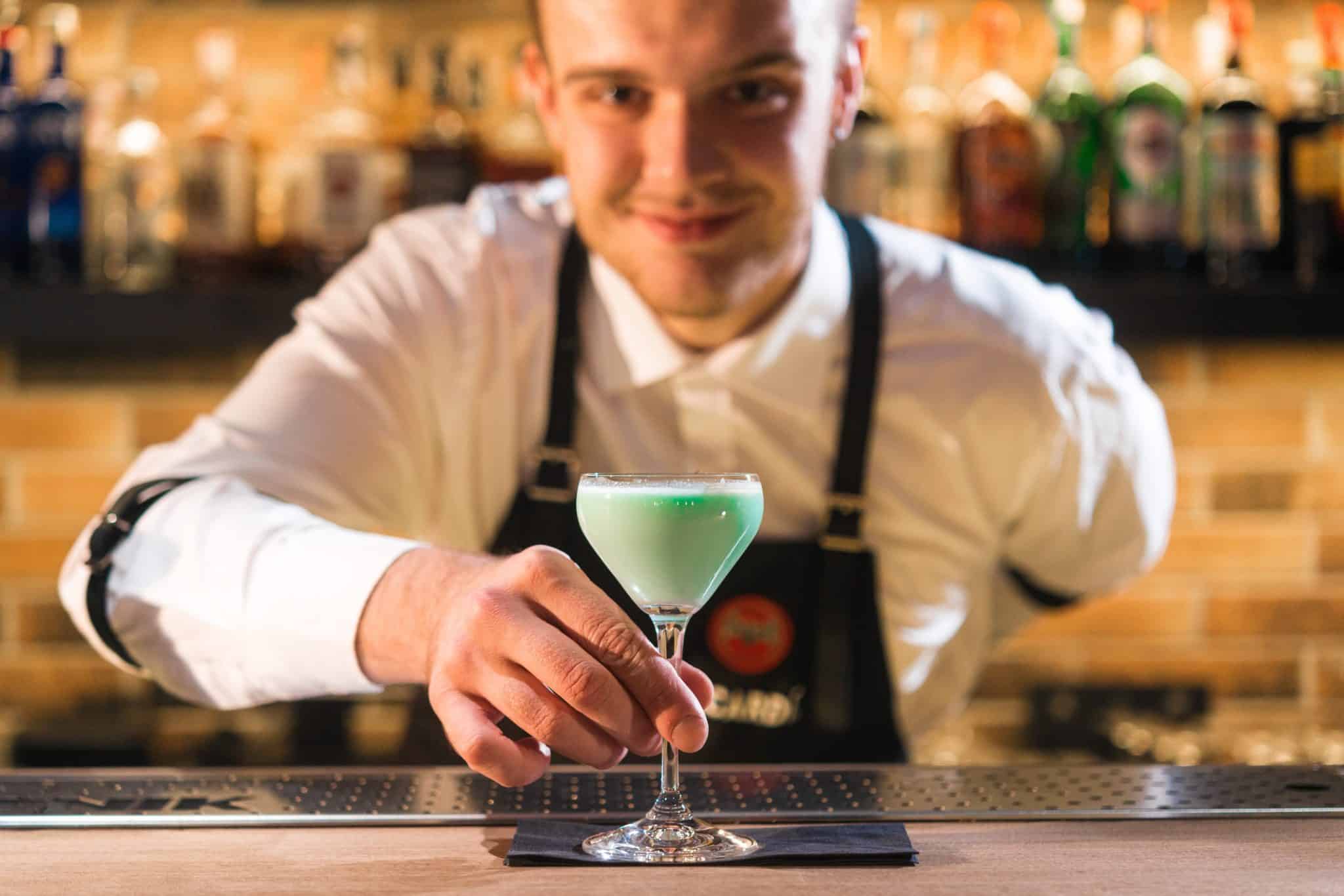As consumer tastes have become more sophisticated, so too has the art of bartending. To advance that art, more and more bars, restaurants, and private bartending services are employing mixologists – highly trained and highly-skilled bartenders with both a scientific and artistic knowledge of the creation of beverages – to deliver both incredible libations and impeccable service. There is some confusion as to the role of the mixologist, and in this guide we will break down what defines a mixologist and what these skilled cocktail masters do when blending art and science.
What is a Mixologist?
A mixologist is a person who has specialized training in the preparation of cocktail drinks, including the development and invention of new drink choices. It is important to understand that all mixologists are bartenders, but not all bartenders can be called mixologists.
How does a mixologist differ from a traditional bartender? Bartenders may receive some training, typically on the job, whereas mixologists generally attend specialized (and advanced) schools to complete coursework on cocktail preparation, logistics, and business aspects of the bartending craft. Much focus is given to understanding how flavors complement or contrast with one another; hence, in simple terms, mixology is a blend of art and science. To make the distinction even clearer, a mixologist can be compared to a professionally-trained chef, while a bartender is similar to a short-order cook in terms of skill and service delivery.
What Can a Mixologist Do?
Mixologists can be found in a wide range of settings, from highly-sophisticated drinking establishments to five-star restaurants, speakeasies, and themed bars. Mixologists are also in high demand by private bartending service companies like The Bartender Company of the San Francisco Bay Area. A mixologist prepares cocktails, but he or she delivers an enhanced drinking experience by:
- Understanding how flavors mingle or contrast
- Mastering classic drink choices to sophisticated level
- Taking classic cocktails and developing new varieties or styles based on those classics
- Monitoring profitability for the establishment he or she serves
- Experimenting with new flavor combinations and creation techniques
- Focusing on more than just cocktail flavor by pairing drinks with the appropriate glassware, garnishes, and visual elements to make memorable creations
Mixologists are often called upon to create special drink menus, such as for private events and corporate gatherings. These professionals have an understanding of seasonal ingredients and drink choices, and can develop signature cocktails that fit perfectly to the specific details of a special occasion. Mixologists may also host tasting events, such as those found in upscale drinking establishments. Whiskey or tequila tastings have become incredibly popular in recent years, and mixologists are critical in providing guests with the story and the methodology behind craft spirits.
Why do Mixologists Matter?
Traditional bartenders will always be a valuable part of the drinking experience, but as consumer tastes have evolved and become more discerning in recent years, the role of the mixologist is more critical than ever before. Luxury drinking establishments and professional bartending services alike leverage the skill of mixologists in delivering memorable experiences. With a blend of sophistication, specialized training, and a focus on developing new cocktail favorites, mixologists have transformed the industry, giving consumers what they desire.

